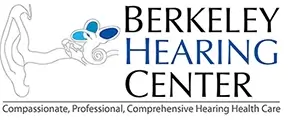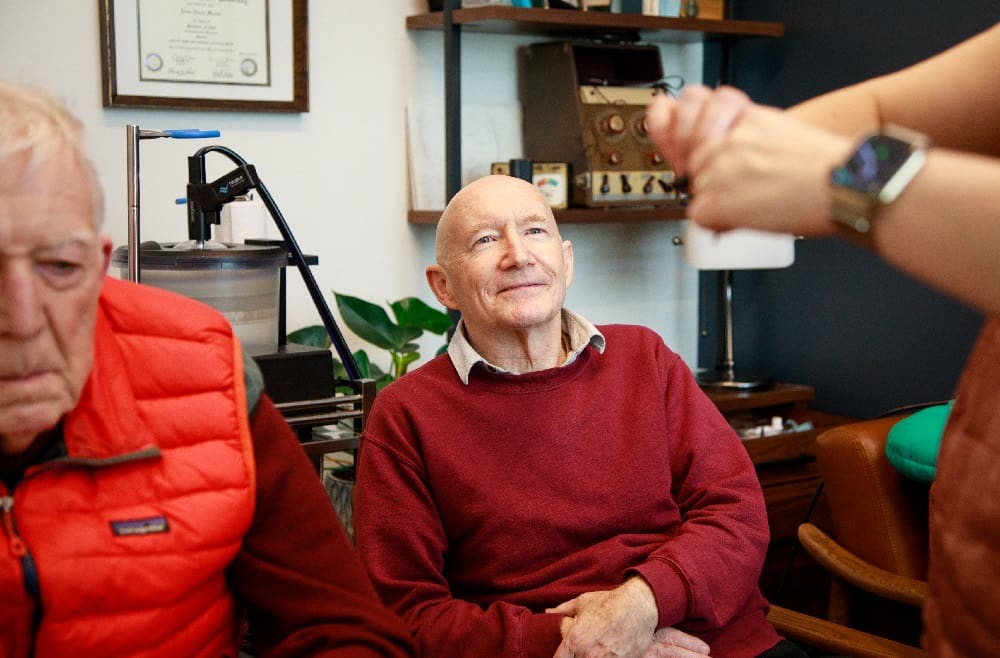2017-06-09
Jonathan Lipschutz Audiologist, M.S., F-AAA, Co-Owner
You've known for a while that you don't hear as well as you used to, but you've been getting by.
However, your family or friends may be 'suggesting' you go get your hearing checked. You're finding it harder to enjoy television or movies because it's a little more difficult to follow the dialogue.
Social situations (parties, restaurants, etc.) are a little more stressful and you find yourself straining to keep up. Business meetings and volunteer work are more challenging.
Maybe people really are mumbling!
Well, what are you going to choose to do about it? A wise person once said, “In life, the only bad choice is the uninformed one.” In this case, the informed choice means getting your hearing evaluated (i.e., a hearing test).
Okay, what do I do now? Where do I go? Do I need a referral from a physician? Does insurance cover it? Will it hurt?!
These (and many more) are all good questions. But to answer that last one first, it shouldn't hurt. At most, some tests require listening to some brief (1-2 seconds), 'loudish' sounds.
Who Treats Hearing Loss?
The medical specialty specifically educated and trained to test, evaluate, and treat hearing loss & its associated communication issues is Audiology.
Practitioners are known as audiologists and have advanced degrees in Audiology. A referral from a physician is not necessary to be evaluated by an audiologist.
Does Insurance Cover Hearing Care?
Many insurance policies (including Medicare) require a referral for a “diagnostic hearing test” for the evaluation to be covered.
And even though most hearing losses do not necessitate an evaluation by a physician and have no 'medical treatment' (i.e., surgical or medications), it is certainly best medical practice to keep your physician informed about your hearing healthcare.
For some types of health insurance (HMOs, Kaiser) you will need to be tested by an audiologist within that system/network. For others (PPOs, POSs), you do not need to be evaluated by an 'in-network' audiologist.
However, the benefit paid may differ between in and out-of-network providers. At my practice (Berkeley Hearing Center), we are happy to contact insurance providers to determine benefits and advise our patients accordingly.
Our experience with PPOs is that the benefits for audiological services (and any hearing aid benefits) are often similar in-network versus out-of-network.
You're almost there now!
What's Next?
By scheduling your audiological evaluation, you're taking that first step towards identifying and treating your hearing/communication difficulties.
If you do not know a good audiologist to work with, speak to your physician about a recommendation and referral. If you have family or friends that wear hearing aids, ask them about their audiologist.
Like other medical practitioners, it's important to find someone whom you feel comfortable with, ideally someone intelligent, experienced, caring, patient and who has your best interests at heart.
https://berkeleyhearing.com/wp-content/uploads/2022/04/Getting-Your-Hearing-Checked-blog-CTA.jpg
What To Expect At A Hearing Assessment
As with all medical practices, there will be some 'paperwork' for the office to obtain your personal/demographic and insurance information. Some practices may have forms online, while others may have you fill them out in the office once you arrive.
Your Health History
As with all good medical practitioners, audiologists are trained to begin by getting a full/complete audiological history.
This will include questions addressing the primary complaint (“I have a hard time understanding my wife”, “I can hear, but I can't understand in noisy situations”, “The TV needs to be louder”, etc.), its duration and progression (i.e. sudden* or slow).
You will be asked about subjective associated symptoms (tinnitus or 'ringing of the ear', dizziness, fullness/pressure). Some medications have negative (“ototoxic”) effects on the ear, so it would be helpful to have a list of your medications.
We ask about sinus and allergy issues, since the ears are essentially contiguous with the throat (via the eustachian tube) and play a part in overall ear health and hearing. In my practice we also get a “communication history” to understand the practical aspects of your hearing loss and how it affects communication.
An Examination Of Your Ears
Before testing, the audiologist will look into your ears with an otoscope to assess the health of the ear canal and ear drum. Unsurprisingly, ear wax can be a significant issue for some.
If you suspect you have excessive earwax, it's a good idea to get your ears cleaned prior to testing.
https://berkeleyhearing.com/wp-content/uploads/2022/04/Getting-Your-Hearing-Checked-blog-CTA.jpg
The Hearing Test
The next step is the actual hearing test.
Testing should always be done in a very quiet environment, preferably a testing booth. A complete hearing test includes both listening for tones/beeps and repeating back words.
Tones are used to determine your audiometric thresholds, the softest sounds you can hear at different frequencies/pitches. You are asked to listen via headphones and indicate when you hear them by pressing a button or verbally indicating.
Word testing is used to verify the threshold results and assess basic word recognition at a comfortable volume, and may be recorded speech or live voice.
A full audiometric evaluation will also include “impedance audiometry” (tympanometry & acoustic reflex testing) to assess the health of your eardrum/'middle ear' and the nerve pathways from the ear to the brainstem.
These tests just require you to sit still and quiet. These tests can (infrequently) be mildly annoying, but they give us valuable information.
Your audiologist now has the information needed to counsel you and make recommendations.
The Results
Whatever the results are, audiologists are ideally suited to guide you regarding what's next. If indicated, they can refer you to an otolaryngologist to address any medical issues.
If you are referred by or to a physician, the results/recommendations should be sent to them.
However, much more often than not, hearing loss can only be addressed via amplification (i.e., hearing aids). Either way, you have made the wise and appropriate choice to begin the process of addressing your hearing issues and improving your quality of life!
* A sudden hearing loss (sudden drop or awakening with a hearing loss, hearing loss over a few days, selective low/high-frequency loss, distortions in speech perception) is classified as a true medical emergency requiring immediate medical care for treatment to be most effective.
Ready To Start Your Journey?
You’ve made the right choice if you’re now considering the next steps in your journey to better hearing. A comprehensive hearing evaluation will help determine the best outcome for you. This consultation is always no-obligation, what you do with your results is up to you.
To schedule a comprehensive hearing assessment, please click here.
We look forward to partnering with you!
Jonathan Lipschutz Audiologist, M.S., F-AAA, Co-Owner






